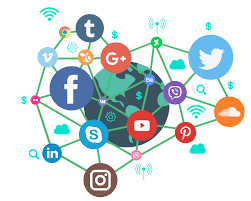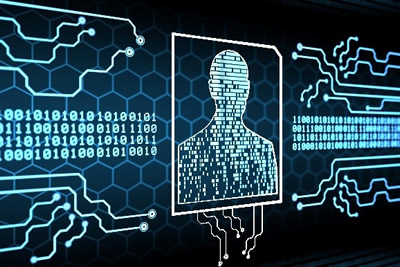
• What does it mean to network using social media?
Social media means that we can socialize online, such as meet people from all over the world. We can also receive real-time news of the world through the network.
• How are we motivated to participate in networked publics?
With the advent of the information age, social media has become ubiquitous. Social media are indispensable for communication, study, and entertainment. In fact, a person who does not use social networks at all would not be able to study and socialize properly in today’s society. That makes us have to participate in network publics.
At the same time, social media is attractive to us. We can find any video we are interested in on YouTube, we can share our lives on Instagram, and we can make friends with people from all over the world on Facebook. That’s also the motivation we participate in network publics.
• What are the risks & rewards of public communications?
Public communication has both risks and rewards.
The reward is, public communication will speed up the transmission of information. For example, some of what we know comes from others’ sharing, and we also share what we know to others.
The risk is, it is inevitable that some statements will lead the unthinking person in the wrong direction. Such public communication sometimes involves political topics, which is not good. At the same time, social networks have memories. Speech posted in a digital identity will follow us. It is harmful to our privacy.

• What is a digital identity?
Digital identity can also be seen as a set of closely related data that records everything we do online and our privacy.
• How do personal versus professional approaches to digital identity affect social media use?
digital identities can reveal personal preferences to some extent. So depending on each person’s digital identity, the contents they received on social media will be different. This makes what we see on social media interesting to us.
For us personally, digital identities can also be accounts on different websites that allow us to conduct personal activities on social media sites.
• How do digital identities converge in networked publics – what are the impacts and/or benefits?
Our digital identities are most often used to create accounts across different social platforms. Digital identities are also becoming our online ID, helping us to work and do something else more easily. For example, paying tuition fees online uses our digital identities.
However, digital identity also brings risks, such as privacy leakage. The most common situation is the account stolen, and the credit card been stolen used. So what we need to deal with now is the problem of privacy leakage caused by digital identity.
Reference
Blog.avast.com. 2020. What is Digital Identity? Avast. Available at:<https://blog.avast.com/what-is-digital-identity-avast>.
Stoller, E., 2016. What is Digital Identity? Youtube. Available at: <https://youtu.be/u0RryRbJza0>.
Youtube.com. 2019. Davos 2019 – Press Conference The Value of Digital Identity for the Global Economy and Society. Available at: <https://www.youtube.com/watch?v=1-V7lyxrOmw>.
Leave a Reply